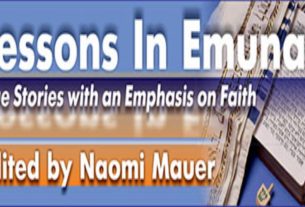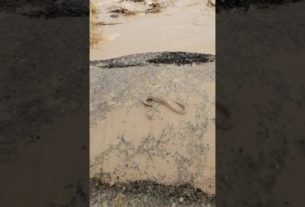The Midrash (Vayikra Rabba 30) offers the following mashal to explain why one may not use a stolen lulav on Sukkos: A highway robber once stopped a high ranking official and robbed him of everything that he had. One day the robber was caught and was brought on trial before the king. The high official heard that he was caught and went to visit the robber in jail. He told the robber that he will speak in his defense at his trial. And he did speak indeed. Yet, when the official got up to speak, he informed the court of all the horrible things that the highwayman did to him. The Midrash concludes, woe is to him who his defendant becomes his prosecutor.
I understand why if one steals a lulav it can become his prosecutor. The question that I have on this Midrash is where do we find that the lulav is our defendant?
‘);
_avp.push({ tagid: article_top_ad_tagid, alias: ‘/’, type: ‘banner’, zid: ThisAdID, pid: 16, onscroll: 0 });
I thought that the p’shat in this Midrash was connected to the following Midrash further in the same perek: The Midrash there offers the following mashal to the month of Tishrei: A certain city owed a hefty tax, and the king was en route to collect it. The gedolim of the city came to greet the king ten mil before he reached the city and praised the king. The king then reduced a third of the owed tax. When the king reached within five mil of the city the middle class of the city went out to greet the king and sing his praise. The king then forgave the next third of the tax. When the king finally entered into the city every single person came out to greet and praise the king, and the tax was completely annulled.
The Midrash explains that from before Rosh Hashanah the tzaddikim fast and Hashem forgives a third of our aveiros. From Rosh Hashanah through Yom Kippur many more individuals fast and the next third of our aveiros are forgiven. Then on Yom Kippur everyone fasts and from Yom Kippur through Sukkos every person is busy with mitzvos; this one with his sukkah, this one with his lulav, etc. Finally on the first day of Sukkos when we each stand before Hashem with our lulavim in our hands Hashem says I forgive all of the aveiros. The Midrash concludes that it is for this reason that Moshe Rabbeinu warned us “V’lakachtem lachem bayom harishon” – to take a lulav on Sukkos.
We see from this Midrash that the mitzvah of lulav is connected to the process of forgiveness of Yom Kippur. It is the final step that we must perform before Hashem can forgive all of our aveiros. That is why if it is stolen, we would be calling our prosecutor to come to our defense.
Alternatively, or complimentarily, another place where we find the lulav acting as a defendant on our behalf is in the Gemara in Sukkah 37b, which explains the reasons why we waive our four minim. The Gemara first cites Rav Yochanan who says that we shake the minim forwards and backwards in all directions for the One to whom the four directions belong to. The Gemara then cites Rav Chama bar Ukva in the name of Rav Yosi the son of Rabi Chanina that we shake them in all directions in order to prevent the bad winds and dews. Interestingly, the Gemara says that the four minim have powers that seem kabalistic in nature to us. Be that as it may, we see from the Gemara that the four minim do beseech on our behalf, and as the Midrash says if it will be stolen it will turn into our prosecutor, chas v’shalom.
May all of our aveiros indeed be forgiven, may the four minim beseech G-d on our behalf as they are intended to and bring us all closer to Hashem and His Torah. Amen.
<!–
Publisher #16: JewishPress.com
Zone #113: Comment Banner / (02) / News
Size #15: Banner 468×60 (Comments and Mobile) [468×60]
–> ‘);
_avp.push({ tagid: article_top_ad_tagid, alias: ‘/’, type: ‘banner’, zid: ThisAdID, pid: 16, onscroll: 25 });




